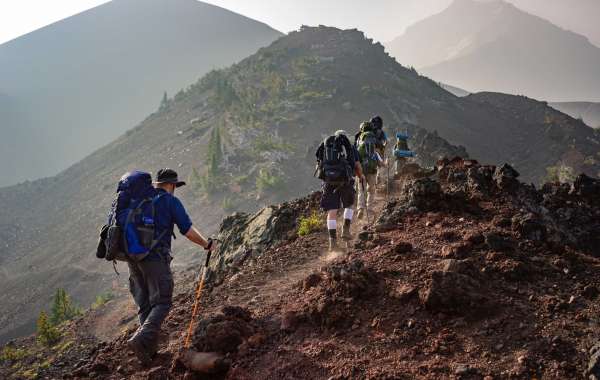Whether you are backpacking veterans or you are trying the sport for the first time, there are many things you should consider when taking a backpacking trip with your family. Here are a few tips that you should always remember before you leave on your next expedition.
Bring Plenty of Water
Hydration is the most integral part of backpacking. You should already be drinking plenty of water before your trip, so that you have the energy to begin, but it is also important to bring enough water to sustain your body in case of emergency. More physical exertion means that you will go through your water reserves faster and sweat more often. Bringing water in a lightweight pack, such as one you can wear on your back and access with a drinking straw, is an ideal option. You should also have an emergency filtration system in case you run out of fresh water.
Prepare for All Types of Weather
Depending on where you live, or where you are planning on backpacking, it is essential to be prepared for weather events that may occur while you are out in the wilderness. For example, if you are in the Pacific northwest, it may be a good idea to bring gear that is suited for rain, like waterproof tents and rain coats. For children that need extra protection, consider purchasing a kids rain jacket, pants, and galoshes, so that they can wear clothes that will not allow water to permeate into their other layers. If you live somewhere that gets very hot during the summer, bring clothes that wick away sweat and do not cause overheating.
Pack Lightweight Gear
When you are carrying supplies to sustain you for several days of backpacking, it is imperative that you pack light whenever possible. This way, you will not strain your back, and will be able to fit more in your pack without sacrificing too much weight. Many companies carry lightweight options that are specifically designed for backpackers. Some of the heaviest items that you can replace include your tent, hiking shoes, sleeping bags, and cookware. Once you cut down on your highest weighing gear, you will be surprised with how much more you will be able to carry to enhance your backpacking experience.
Plan Your Route Beforehand
Before you embark on your backpacking trip, you should make a plan of exactly where you are going to hike. Bring a physical map with you and plot out your route, so that you do not have to rely completely on electronic devices. You should do ample research on the distance you want to hike, and the type of terrain that you will encounter. If you have children, for example, you may not want to choose a hike that they will have extreme difficulty with. You can also plan alternate routes in case problems arise or there is an emergency situation that requires accessing local resources or cell phone reception.
Have Backup Communication
Although cell phones have developed amazing capabilities in the last two decades, they are still not enough in some areas with little to no reception. However, if you need to contact authorities in the event of an urgent problem, it is vital to carry a form of communication that does not rely on cellular power. You can pack a device such as a satellite phone or a two way radio, both of which can be used easily to access local authorities for help. Be sure all members of your party know how to use these devices and can effectively communicate in case of an emergency.
Backpacking is a wonderful activity that allows you to be adventurous outdoors with hikers of all ages. You do not need to worry about having a safe and fun trip. If you follow these guidelines, you will be able to fully experience the outdoors while being prepared for any situation.







